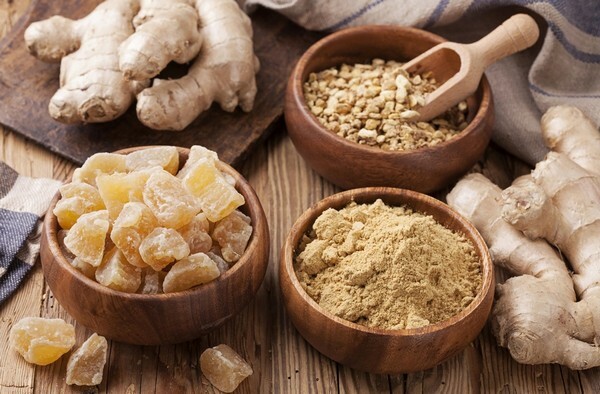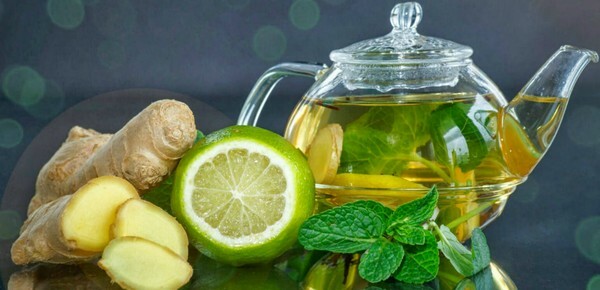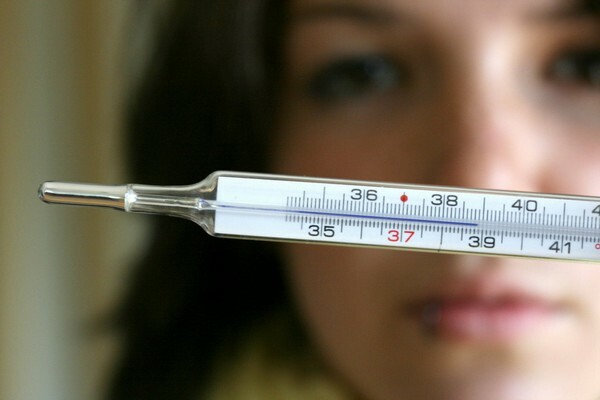- Combination with pharmacological preparations
- Children and pregnant women
- Basic contraindications to the use of
Contraindications to the use of ginger determine the same biological active substances that help a person to fight various diseases. The more organic and inorganic chemical compounds a medicinal plant contains, the longer the list of limitations to its use. And in ginger roots contain a lot of alkaloids, essential oils, fatty acids in high concentrations. This combination often provokes the appearance of undesirable side effects in people with chronic pathologies of the urinary and cardiovascular systems. Therefore, before proceeding to the course therapy with infusions from ginger roots, it is necessary to consult about its appropriateness and safety with the attending physician.

Combination with pharmacological drugs
All medicinal plants, including the roots of ginger, to some extent have the ability to distort the effect of drugs. They can enhance their therapeutic activity, provoking the accumulation in the systemic bloodstream of the main ingredients. In this case, a dangerous overdose occurs, causing symptoms of general intoxication of the body and even acute poisoning. Other compounds from the composition of ginger slow the action of drugs, which greatly retards the onset of recovery. The medicinal plant is incompatible with the following pharmacological preparations:
- blood glucose lowering in the bloodstream in patients with diabetes mellitus - Maninil, Gljurenorm, Diabeton, Glidiab;
- beta-blockers - Propranolol, Carvedilol, Sotagexal, Anaprilin;
- antiarrhythmic drugs - Verapamil, Amiodarone, Metoprolol, Propranolol.
Infusion and tea from ginger is forbidden to use if a person takes medications to lower blood pressure - Bisoprolol, Enalapril, Captopril. Doctors do not recommend these drinks to patients who use in the therapy means for increased blood clotting.
Children and pregnant women
Ginger tea is a popular remedy for getting rid of unpleasant manifestations of toxicosis. Regular use of a fragrant drink with lemon and honey helps prevent nausea, vomiting, and increased nervous excitability. Gynecologists are allowed to take ginger tea only in the early stages of pregnancy. Its use in the second and third trimesters is categorically prohibited for the following reasons:
- biologically active plant substances negatively affect the tone of the smooth muscle of the uterus, which can lead to premature birth;
- the result of drinking freshly brewed tea is often the rise in blood pressure, and this condition is extremely dangerous for the fetus;
- during childbearing can exacerbate chronic pathologies of the gastrointestinal tract, the severity of the symptoms of which intensify the sex effect of the essential oils of the plant.
To whom is contraindicated ginger still - to small children and women breastfeeding. During lactation, along with milk, not only nutrients but also biological active substances are supplied to the baby's body. Their content in ginger roots is so great that it can provoke painful colic, worsen appetite and fall asleep. The same effect is provided by drinks for young children. Pediatricians prohibit the use of ginger tea for the treatment of respiratory diseases or excessive gas formation in children under seven years of age.

. Basic contraindications for the use of
. Ginger tea and infusions are not used in the therapy of patients predisposed to the development of allergic reactions. Redness, rashes and skin pruritus can occur even with external use of the plant. This method of treatment is used to reduce the severity of the pain syndrome in the pathology of the musculoskeletal system - hernia and neuralgia.
Recommendation: Before testing the product from the ginger root, a small test should be carried out. In the wrist area you need to rub a drop of infusion and leave for 30-40 minutes. If during this time the skin does not appear red spots or small pimples, then you can proceed to treatment.

Feverish state
Ginger drinks have been used for a long time to alleviate the condition of a person suffering from a viral or bacterial respiratory infection - sore throat, bronchiolitis, tracheitis. Tea and infusion should be consumed only in the absence of a temperature exceeding the low-grade values (38.5-38.6 ° C).In this case, ginger will intensify sweating, eliminate perspiration and sore throat, will have a toning effect.
But at a high temperature, often accompanied by chills and a feverish state, taking even a small amount of ginger tea will lead to undesirable consequences. There will be a persistent expansion of blood vessels, which will cause increased hyperthermia and even hemorrhages in soft tissues.
Gastritis and ulcerative lesions of the gastrointestinal tract
The ability of ginger tea to improve digestion and peristalsis is actively used by specialists in folk and official medicine. The use of a cup of a fragrant drink quickly eliminates:
- heartburn;
- nausea;
- excessive gassing.
It would seem that a universal and safe treatment for all gastrointestinal diseases has been found. But it's not so simple. A high concentration of essential oils and biologically active substance capsaicin has a negative effect on the gastric mucosa, if it has ulcers, cracks, wounds. And such micro-traumas are always present in people with acute and chronic gastritis. For the same reason, taking ginger infusions is strictly forbidden to patients with gastric ulcer and duodenal ulcer.
Warning: If eating a small amount of tea has caused epigastric pain, nausea, or vomiting, then it's time to contact the gastroenterologist for a survey and prescription of pharmacological agents.

Liver and gallbladder
Ginger is not used in the therapy of liver and gallbladder pathologies. The reason for this is a high content:
- essential oils;
- fatty acids.
These compounds stimulate the production of a large number of digestive enzymes, which increase the load on the liver and gallbladder. The result will be the spread of the inflammatory process, and in the severe course of the disease - necrosis of internal tissues. Actively working cells will replace coarse fibrous tissue, devoid of any functional activity.
Of no small importance is the ability of ginger to enhance blood circulation. In people with a normal state of health, such an action will bring only positive results, speeding up the metabolic processes. And with cholelithiasis, the improvement of microcirculation will cause the movement of concrements. If the gallstone is large or has sharp edges, the integrity of the ducts may be impaired when it leaves. In this case, an urgent surgical operation is capable of saving a person's life.
Cardiovascular diseases
Adding a fresh grated root of ginger to ready meals often provokes a sharp rise in blood pressure due to the expansion of blood vessels. Therefore, cardiologists categorically prohibit the use of spice to patients with hypertension. The main contraindications to the use of ginger root are the transferred myocardial infarction or stroke. The use of even a small pinch of spice will lead to the development of complications, and in some cases to a recurrence of pathology.
Under the ban, the plant is located with coronary heart disease, renal hypertension, pre-sulphurous condition. The root of ginger is better not to use people predisposed to the development of cardiovascular diseases.
Advice: Do not use spice with increased permeability of veins, arteries, capillaries. For this reason, people with hemorrhoids eating ginger infusion will provoke an exacerbation of the disease.
